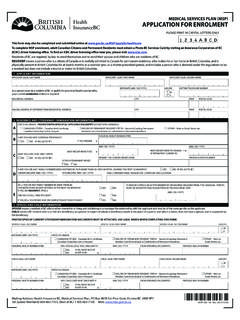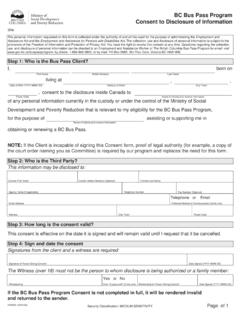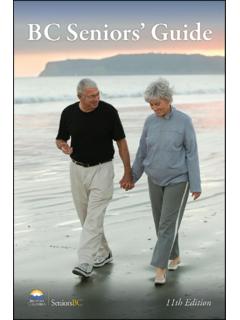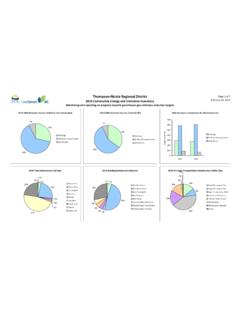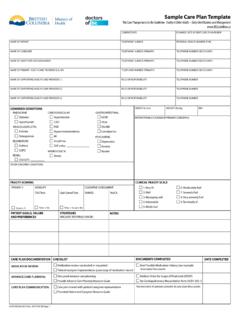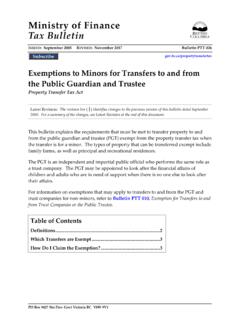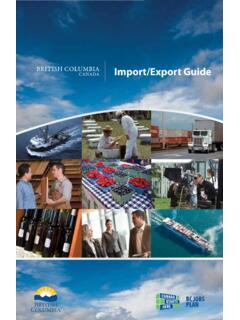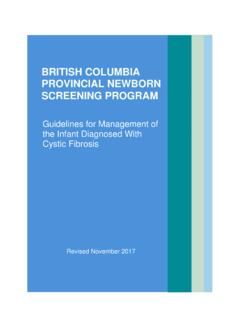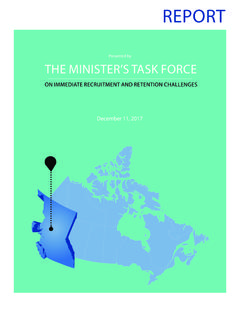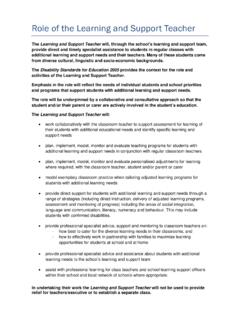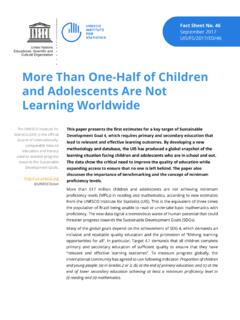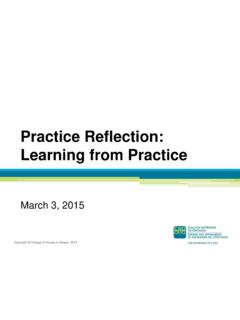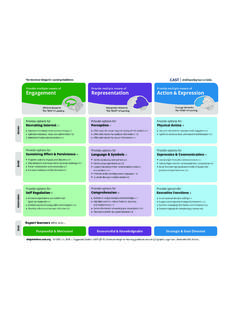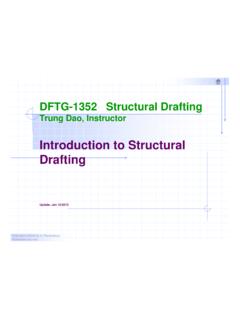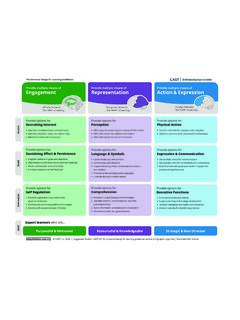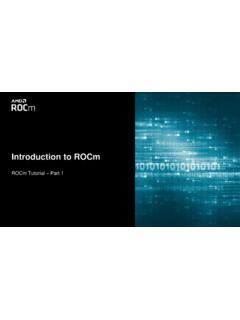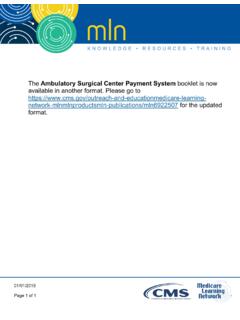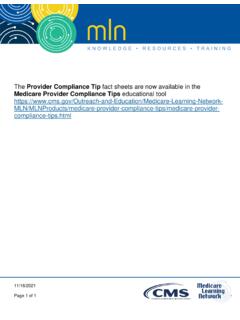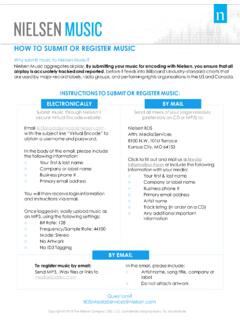Transcription of First Peoples Principles of Learning - British Columbia
1 First Peoples Principles of Learning First identified in relation to English 12 First Peoples , the following First Peoples Principles of Learning generally reflect First Peoples pedagogy. Because these Principles of Learning represent an attempt to identify common elements in the varied teaching and Learning approaches that prevail within particular First Peoples societies, it must be recognized that they do not capture the full reality of the approach used in any single First Peoples society. Learning ultimately supports the well-being of the self, the family, the community, the land, the spirits, and the ancestors. Learning is holistic, reflexive, reflective, experiential, and relational (focused on connectedness, on reciprocal relationships, and a sense of place).
2 Learning involves recognizing the consequences of one s actions. Learning involves generational roles and responsibilities. Learning recognizes the role of indigenous knowledge. Learning is embedded in memory, history, and story. Learning involves patience and time. Learning requires exploration of one s identity. Learning involves recognizing that some knowledge is sacred and only shared with permission and/or in certain situations.
